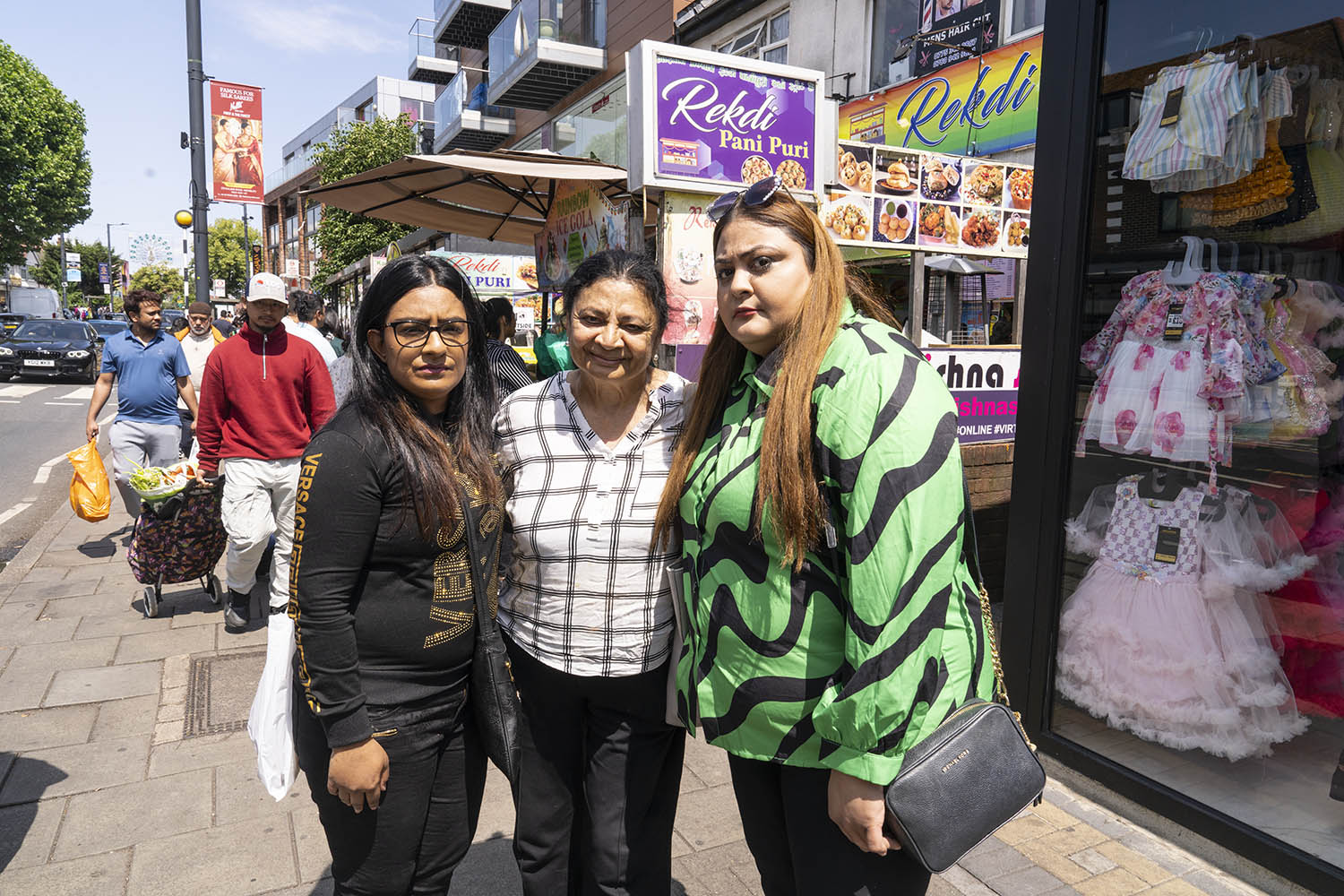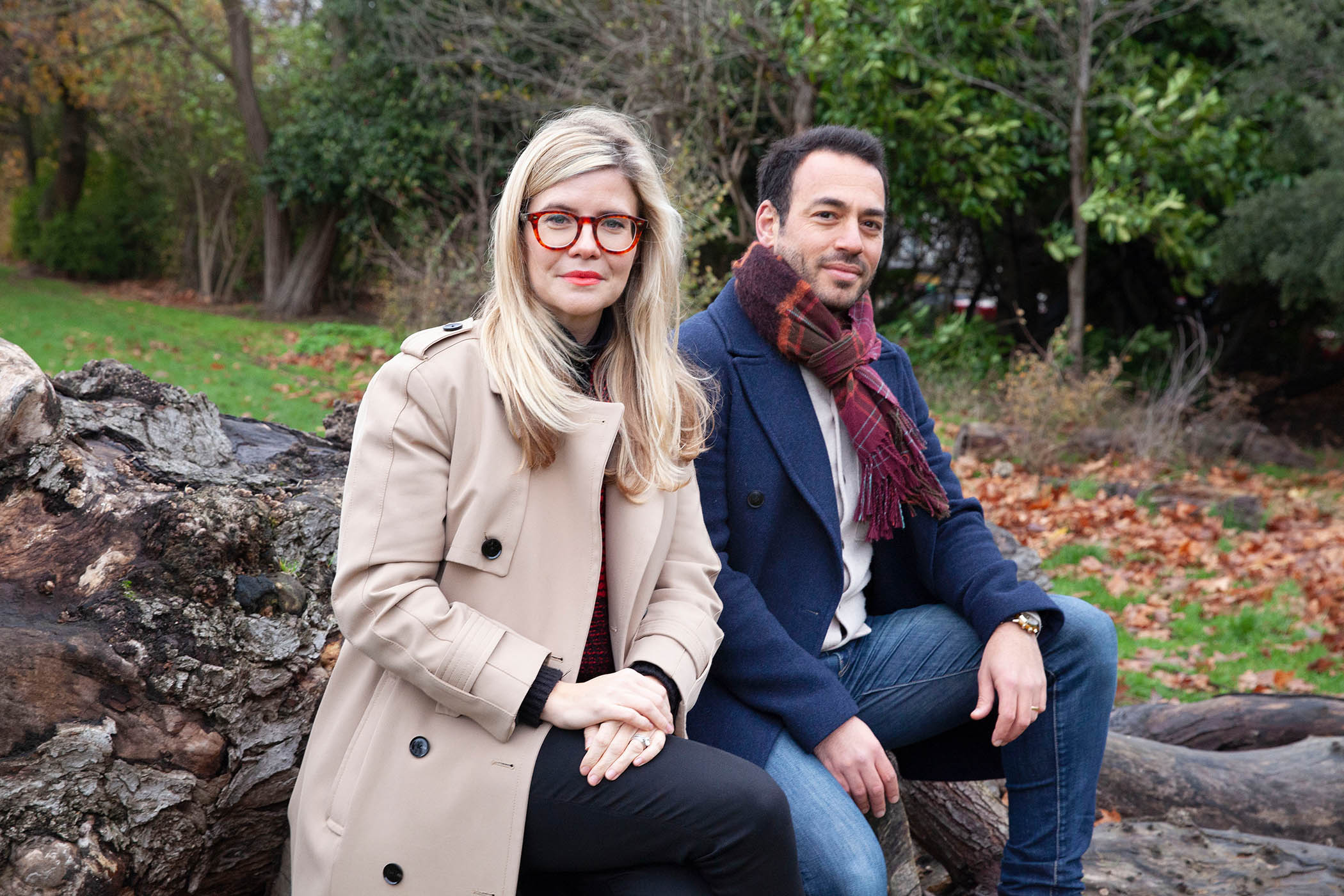Hundreds of people would be usually out on a warm Friday evening on Ealing Road. This half-mile stretch of Wembley suburbia, the heart of London’s Gujarati community, is perfumed with rose petal and betel leaf from the paan shops, wafts of sandalwood incense from sari sellers and spices from the chai wallahs and the pani puri stalls.
“Every evening after work people play music outside, having a good time, talking to each other,” says Druba Lal, serving sweets and samosas at a branch of Ambala. “But that day no one was here – and even today there are less.”
His colleague Prathan Kartilal interrupts. “I know one of the guys [who died]. He used to come in for habshi halwa [a cashew and pistachio fudge], during festivals, Diwali.” He shakes his head.
Everyone here has spent too long already staring at the videos of flight AI171 as it ascends, freezing the frame in their imaginations and willing it to tuck away its wheels and keep rising, instead of sinking into a fireball on the horizon. Everyone here either knows someone who has previously taken – or has themselves once taken – flight AI171, the only direct flight between London and Ahmedabad.
Related articles:
“How could it have happened?” asks Shah, who works at Panachand Pan House. Details are starting to emerge, but it is not yet known what really happened in the moments before the crash.
What is clearer is the devastation caused, less than a mile from the runway, by the impact of the 228-tonne Boeing 787-8 Dreamliner and the explosion of its near-full tank of kerosene. Meghaninagar now smells of the acrid stench of aviation fuel, burned metal, plastic and bodies – passengers, crew and medical students at BJ Medical College hostel. So far, 270 people are confirmed dead, with 53 British citizens on board.
There are about 800,000 Britons of Gujarati origin – many of them from the diaspora in Kenya – who have settled in the UK since the 1960s, particularly in London and Leicester.
People on Ealing Road mention some of the most painful cases. A vigil was held on Friday evening in Watford to pray for the orphaned daughters of Arjun Patoliya, who died after visiting Gujarat to spread the ashes of his wife , Bharti, who died of cancer a few weeks ago.
“How can this happen to so many people?,” says Shila Shah, who is out with her daughters, Mohini and Navika. “My daughter-in-law… her family were on the plane. Five or six people.”
She, like everyone The Observer spoke to here, has taken flight AI171 many times to visit friends and family. Air India has suspended the service and renamed it AI159. Other planes heading to India have been filled with people looking to comfort relatives and find answers.
Hindu and Jain temples in London have been holding prayer meetings and, on Friday, Yogvivekdas Swami, the head swami of Neasden Temple, led a service for worshippers.
Everyone knows someone, an acquaintance or relative or loved one who may have passed away’
Yogvivekdas Swami, Neasden Temple
“Everyone knows someone, an acquaintance or relative or a loved one who may have passed away,” he says.
“In India, we are supporting people on the ground and we’re inspiring our devotees to donate blood if required and prepare food for those families that may be affected.”
Monsoon rains are creeping up the coastline and will be in Ahmedabad in a week or so, replacing the blazing 39C (102F) heat with a permanent sweat.
It is the season to come to England, says Smriti, a recent graduate from India, now living in London and visiting the Jaipur Literature Festival London (JLF London) taking place at the British Library on Saturday.
“I take that flight,” she says. “I visit India once every two years – you finish that few weeks’ pilgrimage to your homeland, then get the flight back, and I think a lot of people are in that position, like the one survivor and his brother who'd been visiting family. It’s very easy to imagine yourself in that situation.”
William Dalrymple, the author and co-founder of the festival, said the majority of the crowd spend their time between the two countries, himself included.
“Everyone [at JLF London] is very, very shocked. Many of us have started our sessions by having a minute of silence. “It’s a small world, this world that moves back and forth between here and India, so everyone seems to know someone who was on the flight, or nearly on it. We are an example of the bridge between the two countries. So it feels very much like a knife in the jugular, and we’re all going to be very much more nervous on this route.”




